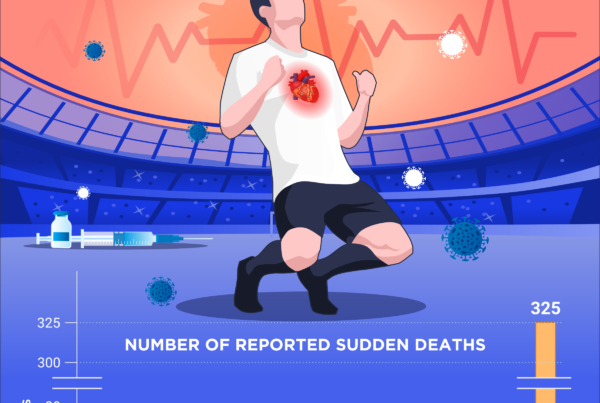Ten tips to help improve your ability to deal with offensive and potentially harmful sounds, smells and sights
Imagine relaxing in a quiet space engulfed in a great book. Suddenly you’re jolted by a very loud sound that sends vibrations through your body. Your heart beats stronger and faster, your eyes dart searching for danger, your posture is alerted.
What you’ve just experienced is something called sensory stress — and it affects us all in various ways.
We generally think of brain-injured people as those who have experienced some sort of physical trauma, but this term also includes people with other neurological issues such as those on the autism spectrum, or with attention deficit hyperactivity disorder and other named conditions (including neurological diseases).
While these people are often considered sensory challenged, or even diagnosed with sensory integration disorder, they really are just more acutely aware of perceptions we all sense. Some people are more offended by daily sensory input, some have gotten used to it, and others respond in extreme ways, vocally, covering their ears, or quickly moving away from the offending sensations.
This acute sensory awareness is a natural human response to the world around us. We may not always be consciously aware of the many various sounds, sights, smells, tactile and other senses the brain encounters, or feels. Sometimes it’s subconscious.
The many moment-to-moment inputs from our environment that travel through the body and into the brain are, in fact, stressors to everyone, and we must adapt to them. We all handle sensory sensation stressors differently. It’s finding peace and quiet that has become more challenging.
Like all other living things in nature, we live or die with an acute sensory awareness. Too much and/or the inability to manage or adapt to it and we’re vulnerable to harm. Recognizing it is an important step in regulating it, just like other stress.
In modern society, we’ve allowed auditory, visual, vibratory, olfactory (smell), taste and other sensation stimulation to overrun us. It’s literally gotten out of control, and enough to stress anyone. This sensory pollution can contaminate our brains, and even contribute to physical and mental-emotional ill health. Here are some examples:
- Noise pollution. Unlike listening to a symphony, the ocean waves or other pleasing (for most people) sounds, our surroundings can be full of unwanted sound called noise even in rural areas. Leaf blowers, cars, trucks, and buses, barking dogs and too many other offensive sounds, indoors and out, including loud people on cell phones contribute to this problem. While the sound of normal conversation is about 60 decibels, reaching 85 can be excessive — which could be a TV, vacuum cleaner or city street — and harmful. A lawnmower is 90 and loud music over 100. The U.S. Environmental Protection Agency has set the daily exposure limit for noise to 70 decibels. Tens of millions of people worldwide are regularly abused by noise pollution.
- Olfactory odors. Bad smells are a form of air pollution, and not just annoying but harmful. Unfortunately, fumes have taken over the airways, becoming an accepted part of modern life. Fake fragrance and other smelly chemicals are found in clothing, cars, stores, packaged products, soaps, cleaners, most cosmetics and hundreds more items. These toxins are a major part of indoor air pollution in particular, which get trapped in our homes, workplaces and schools, and are constantly inhaled, and a recognized significant health risk.
- Visual pollution. We live in a garbage society. It’s beyond litter along roads, trails, parks but also where we work and live. It includes the cluttering of billboards along highways, online ads and junk mail. Plastic waste is particularly offensive. Light pollution is a common and serious visual problem too, especially at night, disturbing not only the brain but the ecosystem.
Sensory sensation begins developing before birth, and some newborns, particular preterm, cannot process sensation in the brain properly. This sensory processing disorder can affect behavior and motor function as infancy, adolescence, and in later life. In addition, atypical sensory processing affecting social behavior is not uncommon, especially those with autism, ADHD and other named conditions as mentioned previously.
We control the risk of sensory overload by evading excess auditory, visual, vibratory, olfactory, taste and other unwanted sensation stimulation. Here are some ways to manage them:
- Avoid TV and radio, especially the audio and visual stress of commercials.
- Keep your immediate indoor and outdoor environment neat and clean.
- Wear earplugs when driving, flying, or using mass transit (airplane noise can exceed 100 decibels on takeoff and landing, and 85 when cruising), and when using power tools, or other loud equipment.
- Use quiet time often.
- Use noisy appliances only as needed (a full dishwasher, short cycle and full clothes washer, etc.), and avoid being nearby when possible.
- Avoid using or storing chemicals inside the home — use natural unscented, fragrance-free products.
- Eat only healthy and naturally tasty foods.
- Maintain some cross-ventilation in home (and office if possible) such as from a slightly open east and west facing window.
- Maintain a dark, quiet and cool bedroom.
- Avoid as much as possible unpleasant sights, sounds, tastes, smells and other sensory sensations.









